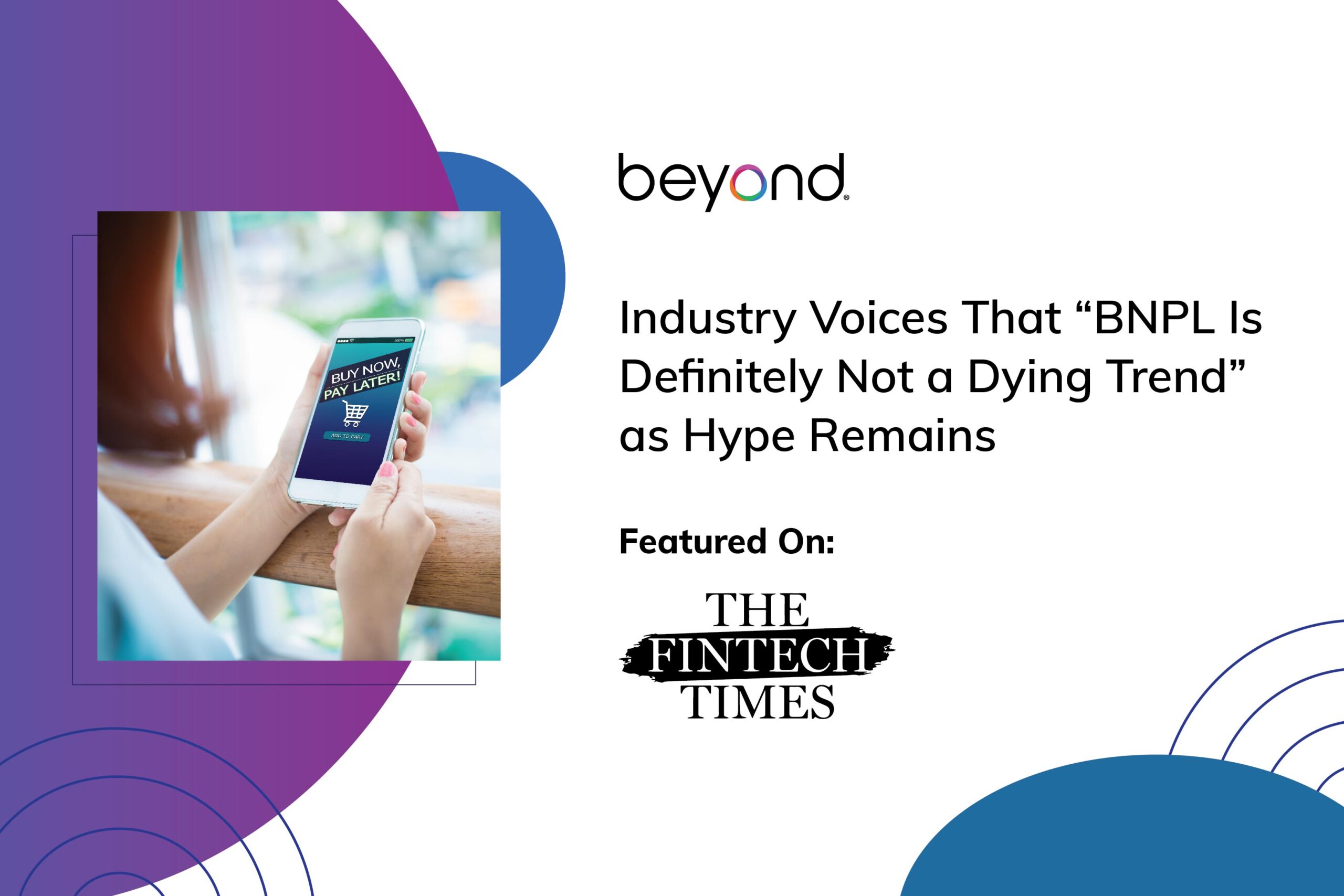When the pandemic covered the planet like the masks so many of us wore for protection (and fashion), businesses flummoxed. They searched their strategies and created new ones to figure how to navigate “the new normal.” The exploration of capitalism is how “Buy Now, Pay Later” — or “BNPL” — arrived.
Consumers without advanced financial wellness IQ thought BNPL was an evolved take on layaway. Generations ago, layaway was the main tool used to get gifts someone could not afford immediately. This was before the advent of personal credit cards. So, they would pay monthly as one of the big outlet stores held that toy until your final payday.
When the pandemic forced a national quarantine, Internet shopping skyrocketed 230% in year-over-year sales–$21 billion alone in 2021, all from leveraging buy now, pay later services. Today, the BNPL market is $81 billion.
The Fintech Times explored the growth, usage and potential risks of the BNPL market, and called upon Beyond Finance to discuss certain facets of how consumers approach it.
“We need to do a much better job of educating the public about the pros and cons of credit cards and BNPL short-term loans. Foundational financial education and practice, such as budgeting and understanding how credit works, must be part of high school, trade school, and college curriculums.
We need to require this as foundational education so more consumers are informed about the pros and cons of their purchasing decisions. And through BNPL, consumers could feel that they’re much more flush than they are and get into a financial pinch.”
Beyond Finance
We share with our clients and other consumers financial wellness is more than a state of economic mind one has to reach, but a formula one needs to solve. In short, financial wellness is financial literacy (awareness) plus financial practice (action.)
There are multiple risks with BNPL–we have seen them, heard about them, and even wrote about them. Understanding those risks and benefits aren’t enough; we must practice them. Responsible borrowing creates reliable spending. Our experts understand that and share it with our clients, as well as consumers in respected outlets like The Fintech Times.
For the other expert insight in the article, we encourage you to bookmark it and read it at your leisure. In the meantime, be honest with yourself. If you can’t pay for it, save for it. You’ll be happier in the long run.
